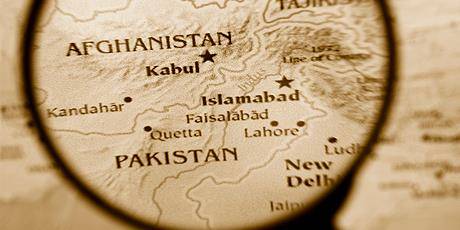The quest for security, peaceful relations with other countries and noninterference in the internal affairs of other states have been at the center of Pakistan’s foreign policy since its inception. The formulation of foreign policy should not be taken as a single, unattached plan – it is an interwoven design, dependent on hundreds of other decisions. Hence, several variables can shape foreign policy and can effect its implementation. These variables are wide ranging, including geography, history, people, leadership, form of government, and international environment.
The formulation of Pakistan’s foreign policy hinges upon its geopolitical environment where regional players are on stage with the New Great Game in the region. Pakistan is a geographical pivot and situated at the intersection of different regions i.e. Central Asia, West Asia, and South Asia. Therefore, it has allied itself not only within the region (South Asia) but Central Asian and West Asian states are also well linked economically and geographically. However, continuous instability in Afghanistan and India’s perpetual hostility has the potential to create crises and regional instability. In retrospect, India’s foreign policy remained crucial in shaping Pakistan’s foreign policy; the antagonistic hype against Pakistan’s development is obvious. It can also be assessed that US has chosen India as a counterweight to China (our strongest ally), which is provoking Pakistan’s security concerns. Pakistan has adopted a proactive policy against terrorism, by launching the successful operation Zarb-e-Azb, but New Delhi’s consistent struggle to prove Islamabad’s support of militancy is aggravating the situation and casting doubts – this has strained the country’s ties with Afghanistan too.
This externally projected negativity against Pakistan is an effort to defame it internationally. While looking at Pakistan’s foreign policy, one must not overlook the long border with India, a place of many conflicts and wars. One must also be cognizant of the history of Pakistan-Afghanistan-India relations. The bloodshed attached with Partition led to the formation of the independent states of Pakistan and India, simultaneously creating bilateral aggression, primarily because of the issue of Kashmir. The sensitive issue of Afghanistan’s dissention to accept an international border (Durand Line) must also be understood. It is pertinent to remember that Pakistan’s interest is to retain amicable relations, but anti-Pakistan lobbying is a major obstacle to regional peace.
Indeed, peaceful Pakistan along with Afghanistan can play a key role in bridging South Asia with Central Asia and can enhance regional stability too. Pakistan has sought to upgrade relations with Afghanistan and signed several agreements with Central Asian Republics (CARs), but haters are trying to thwart regional peace. Regional connectivity undoubtedly will open new horizons for landlocked CARs and increasing commercial activities will be helpful in mitigating mistrust between states. It is also pertinent to mention that peace is not the responsibility of one state, amicable relations can be nurtured by understanding each other’s security concerns and mutual cooperation on common interests.
In order to normalize tensions, Pakistan has used potent diplomatic tools regionally, used iron fist against militants domestically and collaborated with other countries to make the region securer. Pakistan is conscious of its centrality to regional peace and security, but foreign funded terrorist organizations, hand-in-glove with home-based militants, are trying to tarnish Pakistan’s image. Overall, complex interplay between domestic factors and external developments are important to understand Pakistan’s foreign policy. The country’s decisions are not solely based on conventional insights but security challenges, economic glitches, internal political situation and other unseen pressures impact its decision making.
Overall, one must be mindful that the age of technology and information has spurred the business of blame game and religious rifts are also widening gaps between societies as well as states. This has made the task of radicals easier.






